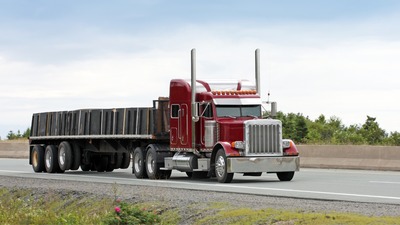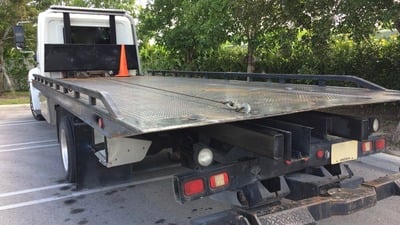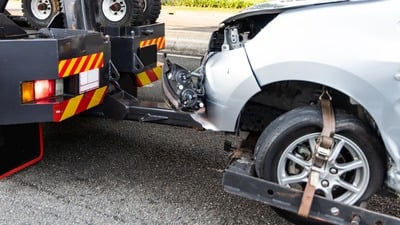Introduction to Cargo Bars: Essential Tools for Load Security
Cargo bars are a trucker's best friend when it comes to securing loads during transport. Think of them as the ultimate muscle, keeping everything in place while you navigate the bustling streets of Detroit or cruise down the open highway. These bars extend between the walls of a trailer or truck bed, creating a sturdy barrier that prevents goods from shifting, tumbling, or falling during transport. They're not just about safety; they're also about efficiency. Secure cargo means less damage, fewer losses, and happy customers at the end of the journey. Whether you're hauling electronics, furniture, or automotive parts, cargo bars are the simple, yet effective, solution to ensure your load arrives just as it was packed, safe and sound.
Why Detroit Truckers Rely on Cargo Bars for Transportation
Detroit truckers know the real deal: cargo bars are essential for safe transport. Why? First, these bars add stability. When you're driving through Detroit's unpredictable weather or around those tight city corners, cargo bars keep your load from shifting. This means less damage to the goods and the truck itself. Second, cargo bars are a versatile tool. Whether you're hauling steel or furniture, these bars can be adjusted to fit a wide range of cargo sizes and shapes. Third, it's about compliance. Following local regulations and safety standards is a must, and cargo bars help truckers meet those requirements. Lastly, using cargo bars is straightforward. You don't need to be a rocket scientist to install and use them effectively. In a nutshell, cargo bars make transportation safer, more versatile, compliant with laws, and they're easy to use. That's why Detroit truckers rely on them for getting the job done right.
Different Types of Cargo Bars Explained
In the world of hauling and moving, cargo bars are your best friends. They keep your load in place, preventing damage to the goods and ensuring safety on the road. So, let's talk about the different types of cargo bars you might come across in Detroit or really, anywhere in the U.S. First up, we have the ratchet cargo bar. This type is a favorite for many because it's easy to adjust. Just extend it across your load, hook it in place, and then ratchet it tight. Simple and efficient. Then there's the cargo stabilizer bar. Made for pickup trucks, these bars extend from one side of the truck bed to the other. They're perfect for keeping smaller loads from sliding around. Some even come with a net to catch loose items. Another type is the telescoping cargo bar. These adjust to various lengths, making them versatile for different sized vehicles or loads. They're pretty straightforward to use, locking into place with a simple mechanism. Lastly, we have the load lock bars for semi-trailers and larger trucks. These heavy-duty bars can handle significant weight and are designed to fit perfectly in the track systems of larger trailers. Whether you're moving house, hauling equipment for a gig, or transporting goods for work, choosing the right cargo bar can make all the difference. No slipping, no sliding, just everything right where you want it.
How to Choose the Right Cargo Bar for Your Needs
Choosing the right cargo bar for your needs in Detroit boils down to understanding what you're securing and where. Not all cargo bars are created equal. Some are designed for lightweight, while others can handle the heavy-duty demands of industrial hauling. Here's a simple breakdown: First, consider the type of load you're securing. For lighter loads, like boxes or small equipment, a standard cargo bar should do the trick. These are often adjustable and can fit a range of vehicle sizes, making them versatile for different uses. If you're dealing with heavier items, like machinery or large pieces of furniture, look for a heavy-duty cargo bar. These are built to withstand more weight and pressure, ensuring your load stays put during transit. Next, think about where you're securing these loads. If it's inside a truck bed or in the back of a van, measure the space. Cargo bars come in different lengths and often have adjustable ends to ensure a snug fit. Ensuring the bar fits your specific vehicle or trailer is crucial for safety and efficiency. Lastly, consider features that might be helpful for your needs. For instance, some cargo bars come with rubber feet to prevent slippage or damage to the vehicle's interior. Others might have ratchet mechanisms for a tighter fit or even built-in hooks for attaching netting or straps. In summary, when choosing a cargo bar, think about the weight of your cargo, the space you're securing it in, and any additional features that could make your life easier. A little bit of planning goes a long way in ensuring your load stays safe and secure on Detroit's roads.
Step-by-Step Guide to Installing Cargo Bars in Your Vehicle
First, make sure your vehicle is ready for cargo bars. Clean out any debris or materials that might get in the way. Next, take your cargo bar and extend it slightly less than the width of the spot you want to install it. Position the bar where you want it — usually across the width of the trunk or bed of your vehicle. Then, extend the bar until both ends firmly touch the sides of your vehicle. Most cargo bars have a lever or button; press it to lock the bar in place securely. Give the bar a good tug to ensure it's tight and won't move during transport. There, you've installed a cargo bar. Remember, always check the manufacturer's instructions since some bars might have specific steps or tips. And that's it! A straightforward task to keep your stuff safe while you're on the move.
Maximizing Safety: Best Practices for Securing Loads with Cargo Bars
Securing loads with cargo bars is not just about getting your stuff from point A to point B in Detroit. It's about ensuring everything arrives exactly as it left—safe and undamaged. Here's the lowdown on doing it right. First, always choose the right cargo bar for your needs. There are different types for vans, trucks, and trailers. Picking one that's too weak for your load is asking for trouble. Second, place your cargo bars carefully. Position them so they're pushing against the load firmly. This prevents any movement during transit. Remember, a load that doesn't shift doesn't cause accidents. Third, use more than one cargo bar if necessary. For large or irregularly shaped loads, spreading out the pressure with multiple bars can keep things secure. Fourth, regularly check your cargo bars for wear and tear. A weakened cargo bar is a disaster waiting to happen. Replace them if you spot any damage. Lastly, securing your load properly with cargo bars isn't just a good practice—it's your responsibility. An unsecured load can be dangerous to you and others on the road. Keep it tight, keep it right, and ensure you reach your destination without a hitch.
The Role of Cargo Bars in Preventing Cargo Shifts and Accidents
Cargo bars are crucial when it comes to transporting goods safely. These handy tools lock into place between the walls of a truck or trailer, creating a solid barrier that keeps items from sliding, tipping, or shifting during transit. Without cargo bars, the movement of items in a truck can lead to uneven weight distribution. This imbalance can cause the vehicle to handle poorly, increasing the risk of accidents on the road. In worst-case scenarios, shifting loads can lead to catastrophic accidents, posing dangers not just to the driver but to others on the road. Using cargo bars not only protects your cargo from damage but also safeguards the lives of drivers and the public.
Maintenance Tips: Keeping Your Cargo Bars in Top Shape
To keep your cargo bars working well and lasting longer, regular maintenance is key. First off, always clean your cargo bars after use. Dirt and grime can build up, causing them to become less effective. Use mild soap and water, avoiding harsh chemicals that might damage the metal or coating. Next, check for any signs of wear and tear like rust or any bends in the bars. If you spot rust, gently sand it off and apply a rust inhibitor. For minor bends, consult a professional before attempting to straighten them yourself; this could prevent further damage. Lubrication is another vital step. Apply a silicone-based lubricant to any moving parts. This reduces friction, making the bars easier to adjust and extend. Store your cargo bars in a dry, cool place to prevent any moisture build-up that can lead to rust. Finally, routinely inspect the rubber feet or end pads. These parts are crucial for securing the bars in place and can wear down over time. Replace them if they start to look worn or lose their grip. By following these simple steps, you'll ensure your cargo bars remain reliable for securing loads, saving you time and money in the long run.
Legal Requirements for Load Securing in Detroit and Beyond
In Detroit, as well as in the rest of the United States, there are strict legal requirements for securing loads during transport. The cornerstone of these regulations is to ensure road safety – preventing accidents caused by items falling off vehicles. According to the Department of Transportation (DOT), every load must be firmly immobilized or secured on or within a vehicle using appropriate means like cargo bars, straps, or nets. Failure to comply with these rules can lead to hefty fines, and in some cases, points against your driving record. Here’s the deal: if your load extends beyond the sides of your vehicle or trailer, you're required to mark it with visible flags during the day and lights at night. It's not just about avoiding fines; it's about keeping everyone on the road safe. For commercial vehicles, the Federal Motor Carrier Safety Administration (FMCSA) has outlined specific guidelines. These include using cargo securement devices that meet minimum performance criteria, and drivers must be trained on proper load securing methods. Remember, these laws aren’t suggestions; they’re mandatory. And while they might vary slightly from state to state, the overarching goal is universal – to minimize accidents and ensure the safety of all road users. So before you hit the road, make sure your cargo is secured as if everyone's life depends on it — because it just might.
Conclusion: Enhancing Road Safety with Proper Use of Cargo Bars
Wrapping it all up, the proper use of cargo bars in Detroit isn't just about keeping your load steady; it's a big step towards safer roads for everyone. Remember, a secure load means less risk of accidents caused by shifting or falling cargo. This isn't just good practice—it's a responsibility to other drivers and pedestrians. Choosing the right cargo bar and using it correctly can make all the difference in preventing damage to your goods and ensuring you comply with road safety regulations. In simple terms, think of cargo bars as a small investment in safety that has big returns for everyone on the road. So, the next time you're loading up for a haul in Detroit or anywhere else, take a moment to double-check your cargo security. It might just save lives.





